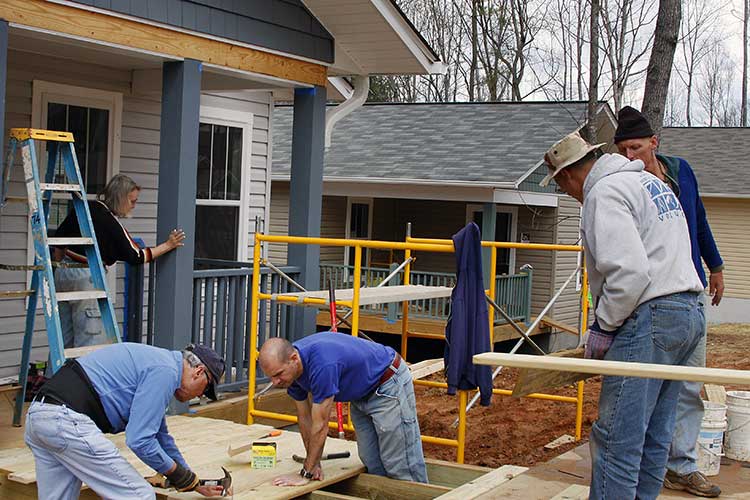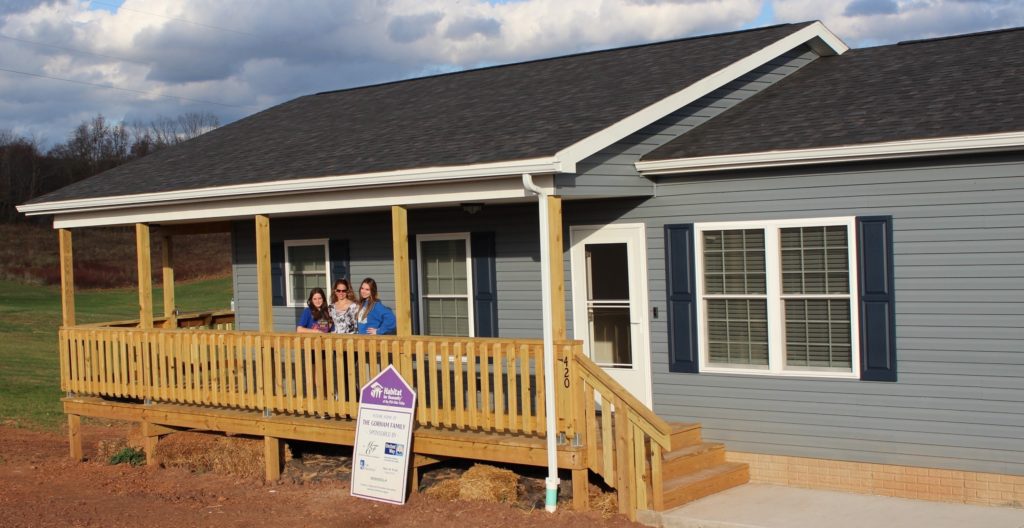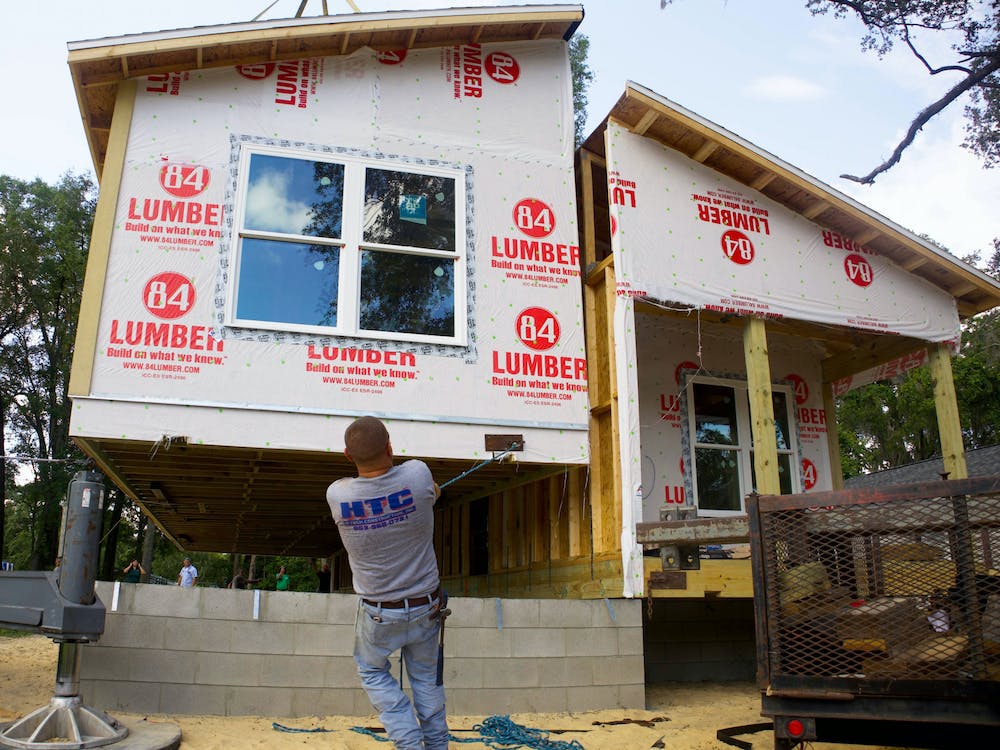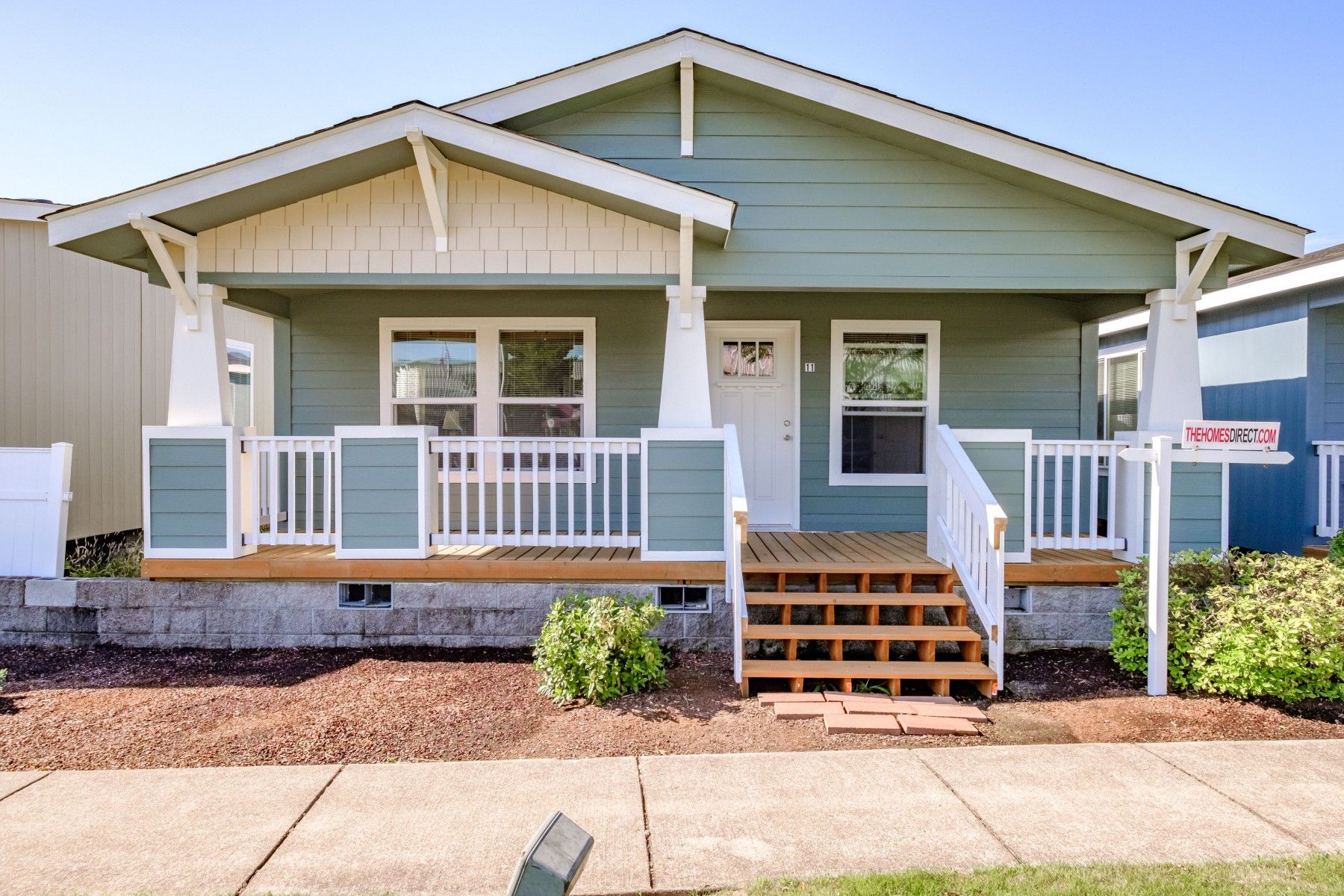In a world faced with mounting challenges in affordable housing, Habitat for Humanity, a globally renowned nonprofit organization, has been at the forefront of creating innovative solutions.

Among their notable initiatives, the utilization of modular homes stands out as a game-changer. By combining the efficiency and flexibility of modular construction with their mission to provide safe and decent housing for all, Habitat for Humanity has redefined the possibilities of sustainable and affordable housing. In this blog post, we will explore the transformative impact of Habitat for Humanity’s modular homes and their contributions to building hope and communities.
Modular homes are constructed in sections or modules within controlled factory environments. These modules are then transported to the build site and assembled to form a complete home. Each module is designed to meet local building codes, and the resulting structures are indistinguishable from traditionally constructed homes.

One of the most significant advantages of modular construction is its inherent efficiency. Habitat for Humanity leverages this efficiency to its fullest potential, allowing for faster construction timelines and reduced costs. The controlled factory environment minimizes weather-related delays and ensures precision in construction. With assembly line-style production, materials waste is significantly reduced, and economies of scale are achieved. These efficiencies translate into cost savings, enabling Habitat for Humanity to allocate more resources towards their core mission of helping families in need.
Contrary to popular belief, modular homes are not one-size-fits-all. Habitat for Humanity understands the importance of catering to the unique needs of each family. Modular construction allows for flexibility in design, enabling Habitat to offer a range of home sizes and styles. From single-family dwellings to multi-unit developments, the modular approach can be adapted to suit various architectural and functional requirements. Additionally, the interior finishes and fixtures can be customized, giving homeowners the opportunity to create personalized living spaces that reflect their tastes and preferences.
Habitat for Humanity has long championed sustainable building practices, and modular construction aligns perfectly with their commitment to the environment. The controlled factory environment enables efficient use of materials and reduces waste. Moreover, the construction process generates fewer on-site disturbances and minimizes the ecological footprint associated with traditional construction. Additionally, modular homes are designed to be energy-efficient, incorporating sustainable features such as improved insulation, energy-efficient appliances, and renewable energy options. By embracing modular homes, Habitat for Humanity promotes a greener and more sustainable future for homeowners and communities.

Beyond the tangible benefits of modular homes, Habitat for Humanity’s focus on community engagement and empowerment sets them apart. The organization fosters a sense of ownership and pride among homeowners, encouraging active participation in the construction process. Families not only gain access to affordable housing but also become stakeholders in the betterment of their communities. Through partnerships with local organizations and volunteers, Habitat for Humanity strengthens neighborhoods, promotes social cohesion, and creates lasting positive change.
Habitat for Humanity’s adoption of modular homes has revolutionized the way we approach affordable housing. By leveraging the efficiency, cost-effectiveness, and sustainability of modular construction, Habitat for Humanity has been able to fulfill its mission on a greater scale. These homes not only provide shelter but also offer hope, stability, and a platform for individuals and families to thrive. As we navigate the challenges of the present and future, the innovative use of modular homes by Habitat for Humanity serves as an inspiration, reminding us of the transformative power of compassion, collaboration, and ingenuity.



